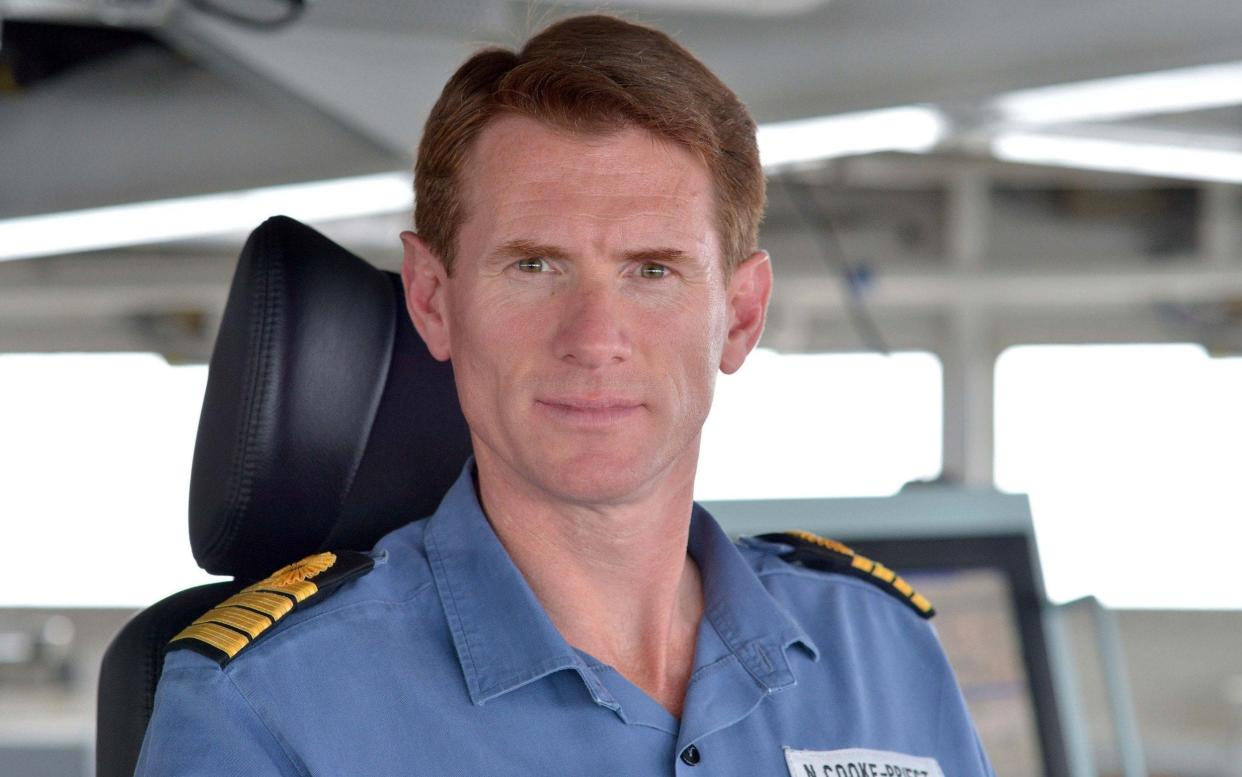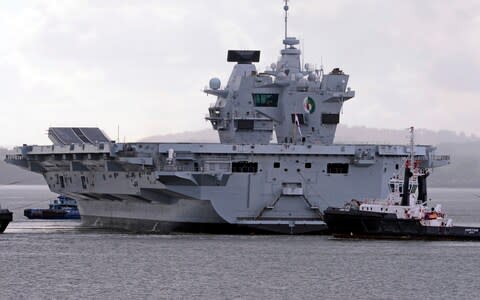Commodore Nick Cooke-Priest 'flown off ship' after being 'reassigned' for using carrier's car

The row over the removal of the commanding officer of HMS Queen Elizabeth took a bizarre turn on Wednesday night as the Navy reversed its decision for him to sail the ship back to its home port.
Commodore Nick Cooke-Priest was ignominiously stripped of his command of the fleet’s newest aircraft carrier over an allegation that he drove the ship’s Ford Galaxy in his spare time “like it was his own”.
The had earier Navy announced that he would still take the helm of the ship to sail it from Rosyth to Portsmouth.
But in a fresh twist on Wednesday, the Royal Navy confirmed he would not be at sea on the imminent journey.
The action was described as a “precautionary measure to protect both the individual and the ship’s company”.
Cdre Cooke-Priest was flown off the ship as it was anchored in the Firth of Forth, the BBC reported.
It is understood Cdre Cooke-Priest will formally remain in command of the vessel until he hands the role over to Capt Steve Moorhouse on Tuesday.

The decision is bound to provoke further confusion after a family friend of the 50-year-old told The Daily Telegraph he had been brought to Rosyth specifically to bring the ship south. Naval chiefs were said to have flown Cdre Cooke-Priest to the Scottish port as there was no one available to take the helm.
The MoD had said as long as Cdre Cooke-Priest was still in command of the ship “it makes sense he is sailing her”. Controversy quickly erupted over his treatment, with General Sir Nick Carter, the Chief of the Defence Staff, expressing disquiet about the decision earlier this week.
Sir Nick is understood to have raised concerns over the nature of the investigation, while there were broader misgivings that a commodore with a previously unblemished record had been punished too harshly.
The decision to reassign Cdre Cooke-Priest would have required the approval of the First Sea Lord Admiral Sir Philip Jones. Senior military officers in other services who have worked with Cdre Cooke-Priest expressed their surprise at the censure meted out to such a well-regarded officer.
“There is a view in other parts of the military that this is a complete overreaction on the part of the Navy,” a senior officer previously told this newspaper.
“There are a number of concerns that this matter has not been properly investigated, and that Cooke-Priest was not given a proper opportunity to respond to the allegations against him.”
Cdre Cooke-Priest, who joined the Navy in 1990, had only been in charge of the £3 billion ship since October.
It is understood he was found to have been guilty of an “error of judgment” in using the car for private journeys although he had paid for the petrol himself and there is no allegation of fraud.
Want the best of The Telegraph direct to your email and WhatsApp? Sign up to our free twice-daily Front Page newsletter and new audio briefings.

 Yahoo News
Yahoo News 
